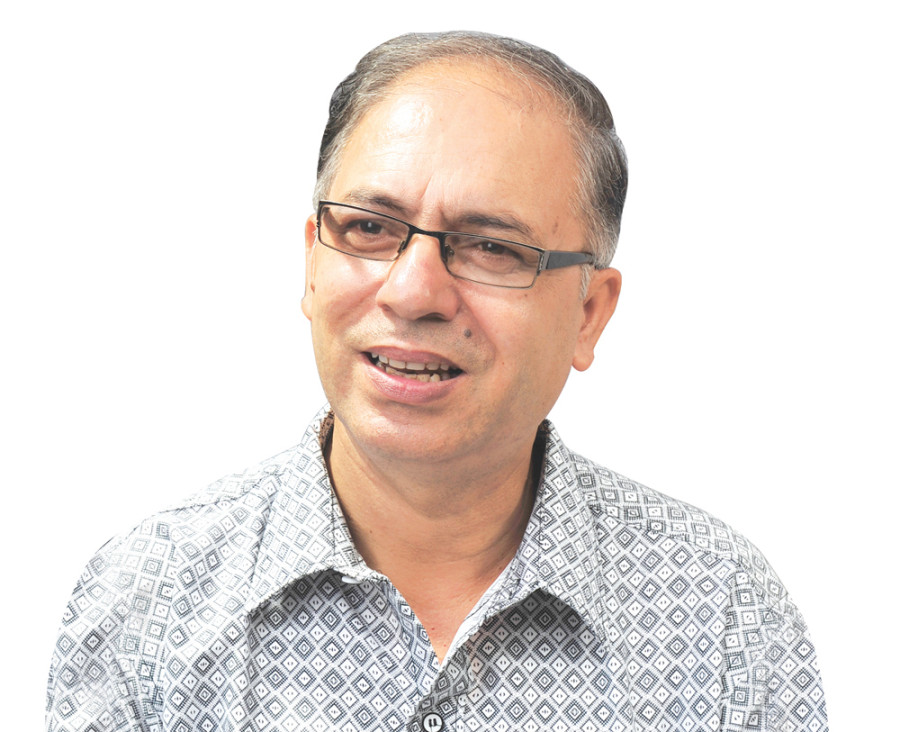Entertainment
‘Good writing comes out of deep meditation’
Yubaraj Nayaghare has authored more than a dozen books, most of which are anthologies of essays and travellogues. Ek Haatko Taali, Nayaghare’s collection of essays, won him the prestigious Madan Puraskar. He has also won numerous awards and
Yubaraj Nayaghare has authored more than a dozen books, most of which are anthologies of essays and travellogues. Ek Haatko Taali, Nayaghare’s collection of essays, won him the prestigious Madan Puraskar. He has also won numerous awards and accolades such as the Uttam Shanti Puraskar, Shankar Lamichhane Puraskar, and Yuwa Barsha Moti Puraskar, among others. In an interview, Nayaghare speaks to Narendra Raule about his love for books and reading habits. Excerpts:
Which book did you complete recently?
I recently completed reading Krishana Dharabasi’s Great Falls; the novel tells the story of the Nepali diaspora and Bhutani refugees residing in the US. The book, extolling the ups and downs of the Nepali expats, is worth a read.
What book is currently on your nightstand?
I am reading the Bhagwat Gita. Sometimes, I like to read books on spirituality and philosophy of life.
Why do you read?
Books are my closest friends; I even forget my friends when I get into a book. I forget my pains and problems when I am reading. It goes without saying that books provide you with knowldge; and books can also fill you with a sense of pleasure which nothing else can.
Who are your favourite writers?
Devkota, Shankar Lamichhane, Krishna Dharabasi, Dr Taranath Sharma. Among foreign writers, I love works of Anton Chekhov, especially. And Marquez, Nirmal Barma, and Khusbant Singh. Although they are from times gone by, they are very up to date and of course are as relevant as, if not more, than they were then.
What about your favourite books?
To name a few: Laxmi Nibandha Sangraha; Gauri, by Madhav Prasad Ghimire; Dharabasi’s Sharanarthee; Abstract Chintan Pyaaj, by Shankar Lamichhane; Parijaat’s Anido Pahad sangai; Maxim Gorky’s Mother. I am more into non-fiction: essays, memoirs, and autobiographies.
Do you reread?
Yes, I do. I read Mahabharata and Purans twice. I read Chanakya four times.
How do you choose books to read?
I take notes when I am discussing books with friends; at times they recommend me ones they like. When you read a good book by an author, you tend to search for his books. That’s how, I guess, I choose books. And, I don’t get carried away by the market hype; I virtually avoid books that are being advertised.
How much money do you spend on books?
I spend about Rs 15, 000 monthly. I buy books during Dashain; when everyone is buying new clothes, I buy new books.
You yourself are a writer. What moves you to write?
I mostly write about characters and subjects that are out of the radar of the community, but those that make a difference in the working of the society. I also write travellogues; I like to weave nuances of geography, culture, lifestyle, language and nature into what I write.
Which books do you recommend to our readers?
If you want to understand the history of Nepal, Baburam Acharya’s Feri Kahilei Testo Nahos is a must read. Lainsingh Bangdel’s Rome ko Euta Phool ra Paris ko Euta Kanda. Devkota will teach you volumes about the styles and skills of
writing. Madhav Ghimire’s poems are beautiful... BP Koirala’s Aatmabrittanta is a must read.
How difficult is it to write?
There are a whole lot of writers out there. But if you are to be a good writer... good writing comes out of a deep meditation. You have to fight with yourself and then with the society you live in. And then, you have to lose a whole lot of things.
How much time does it take for you to complete a book?
I complete an anthology of essays in about three-four years. When I write about travel it takes about five-six years. It takes time to study people and the society. And then you have to translate what you study into words. So it takes time.
Any suggestions for young writers?
Read a lot. Read: not only the books but also the society. Read the components of the multifaceted society—economy, politics, and culture, technology. And then you have to write, of course—write a lot. You have to develop the skill of telling much with less words. And you have to be discontent with yourself. If you are content with yourself, and with what you write, that’s not a very good sign for a writer.




 21.12°C Kathmandu
21.12°C Kathmandu









